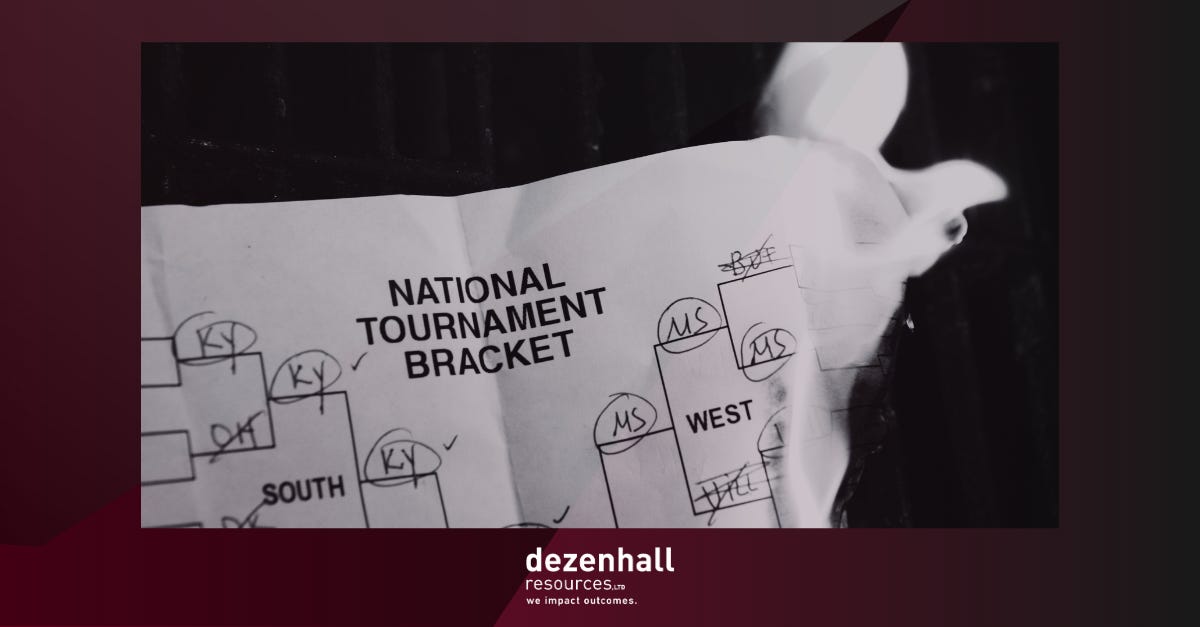Dez Reads. Paramount’s Leaky Merger, The Open’s Democratic Spirit, Celebrating Too Soon in Sports, Biden’s Gen Z Strategy, and Speeding Crackdown in California.
Leon Lett was the talk of my third grade lunch table in 1993 after he prematurely celebrated a touchdown in Super Bowl XXVII, only to have the ball knocked out before he crossed the goal line. This week, Jen Hirshon highlights another premature sports celebration in Europe and muses about a similar dynamic among some of the companies our firm has represented over the years.
Eric Dezenhall highlights the strategic media leaks that helped tank a multi-billion-dollar deal, Annie Moore uses Gen Z terminology I don’t understand to make a good point about people like me not understanding people like her, Mark Emerson examines a surprisingly-not-unpopular proposal to control traffic speeds in California, and I write about how golf reminds us this week of the democratic principles that underpin America’s founding.
Thanks, as always, for reading along with us.
Here we go.

Business.
NYT. Why the Paramount Deal Talks Failed
The merger deal between Paramount Global and Skydance blew up this week. One contributing factor caught my eye: news leaks from both parties. Leaks aren’t new. What is a relatively recent phenomenon is the sheer cascade of news leaks that now infest corporate culture.
Human nature hasn’t changed. What has changed is some combination of the porousness of communications because of technology (leaking used to be kind of hard and risky), a decrease in organizational loyalty, and the sheer thrill of seeing a bomb you detonated here blow up there. It’s the institutional equivalent of the dopamine hit one receives alongside social media likes and shares.
I have one recommendation that may mitigate the hemorrhage somewhat: siloed communications. Many companies are under the illusion that they have “teams” of consultants on their side. They don’t; they are, at their core, a collection of self-interested individuals. If you want to reduce leaks, keep certain vendors at arm’s length. Not everybody has to know everything.
– Eric Dezenhall
Sports.
The Fried Egg. The importance of being open
The US Open is this week, and unlike the majority of top-tier professional golf tournaments, you and I could have qualified to play alongside Rory McIlroy and Tiger Woods. In theory, at least.
While most major golf tournaments have complex qualification rules that essentially close off competitions to outsiders, the US Open provides a qualification system that allows rank-and-file golfers a chance to earn their way into the tournament by winning qualifiers. One of those longshots is Logan McAllister, the 459th-ranked player in the world, who improbably qualified and now sits in the top 10 of one of the biggest tournaments in golf after day one.
I love the US Open for a lot of reasons, but most prominent is that this major championship reflects the founding ideals of its namesake – with hard work, talent, and a willingness to grind, the sky is the limit.
MSN. Spanish race walker loses out on medal after celebrating before finish line
Spain’s Laura García-Caro narrowly missed out on a bronze medal in the 20km race walk at the European Athletics Championships. Unfortunately, it was her celebration before the finish line that cost her the podium spot. This reminds me of a half dozen Dez clients over the years who called us after spiking the football in celebration of their success, only to fall on their faces shortly after.
– Jen Hirshon
Politics.
Politico. Hollywood vets and Biden alums launch super PAC to shore up his youth vote problem
There’s nothing worse than a campaign targeted at you that attempts to speak your language but fails. We’ve seen this time and again in Gen Z with the older generations devising ad campaigns that are supposed to resonate with “the youth” that feel awkward and cringey. The effect is an uno reverse, alienating a brand or person instead of bringing in the younger audience they were hoping for.
A new super PAC supporting Biden for president has realized this and hired Gen Z creatives to strategize how to garner the support of Gen Z voters, a voting bloc from which Biden is leaking votes.
People tend to listen to and trust their peers more than other individuals, such as celebrities. In influencer advertising, the higher converters tend to be nano- and micro-influencers who people feel like they know personally, as opposed to the macro-influencers and celebrities that people tend to view as “pay to play.” This super PAC is setting itself up for success by hiring Gen Z to sway Gen Z. The resulting content will (hopefully, for Biden) be more in line with the rhetoric and visuals that Gen Z creatives know their peers will respond to.
– Annie Moore
Policy.
The Verge. The surprisingly not-so-doomed effort to force US drivers to stop speeding
Some California lawmakers have advanced an aggressive plan to crack down on speeding. Senator Scott Wiener’s bill proposing mandatory speed ‘governors’ on all new cars sold in the state sparked significant pushback, reflecting the ingrained car culture in the state. The legislation addresses the alarming toll of traffic fatalities, which claimed nearly 40,000 lives nationwide in 2023.
Authorities and police struggle to control drivers’ behavior and are now turning to private companies to enforce safer driving practices. Intelligent Speed Assistance (ISA) systems use advanced technologies to detect and regulate vehicle speeds.
However, implementing such measures in California, the nation’s most populous state and largest car market, raises significant challenges. Integrating ISA technologies into millions of new vehicles sold annually presents a formidable task.
The success of this initiative hinges not only on widespread acceptance and use by drivers but also on the cooperation of private companies to develop and implement these technologies, along with stringent regulatory oversight from the state.
If there was ever a moment to buy a 1969 Chevelle SS, now is the time.
– Mark Emerson


